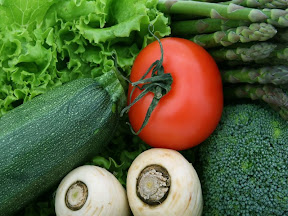
I remember hearing a while back about someone asking a bunch of kids (at school?) where chickens come from and although the responses were varied, they were all supermarket names. I don’t find that story difficult to believe at all. Children grow up in cities and unless some concerted effort is made to expose them to other realities (eg. Rural), the reality of city life is all they know. Not understanding the inputs into the system means that they don’t have a concept of the limitations of unrenewable resources. They believe that any level of consumption is sustainable.
Even as adults, even though we know that chickens come from farms, do we really know what it takes to make sure the supermarket shelf is always stocked with twenty different prepacked chicken options. I try and be an informed consumer, but even I was shocked to my core when I watched the documentary Earthlings which shows exactly what it takes to fill those shelves. I’m not going to go into great detail, but any picture you have of a farm yard with happy chickens clucking and running around is purely a product of too many animated movies. There is a massive amount of suffering, disease and waste. Apart from the humane and environmental impacts of stocking our supermarket shelves, do we have an idea of the impact on other people. Most affluent people will eat chicken breasts much more often than any other part of the chicken, what do you think happens to the rest of the chicken? They are sold at ‘dumping’ prices which has a massive impact on the economies of third world countries. If you’d like to read about it, click here (this story has a happy ending but many don’t).
My point is that we need to make a concerted effort to reconnect with the source of our food and if we are parents, we have a responsibility to our kids; To make them aware of the bigger picture, that urban reality is not the only reality or the whole reality. We need to, and our children need to, understand that the choices we make when we consume affect other people and affect the world. What we wear, what we eat, how much we drive, it all has an impact.
I’ve mentioned the Slow Food movement a couple of times just recently, once in my January newsletter and again in my post about Eat In magazine. I wasn’t aware of this, but they have been working on a community supported agriculture (CSA) initiative. CSA is something I’ve read about but have not heard of it happening in SA until now.

Basically, it’s a progression from the organic box scheme. With the organic box scheme, you sign up to receive a box of organic veggies and fruits once a week for a set price. The contents of the box will vary depending on what is seasonal and how the crops have been affected by weather, pests, etc. (If you’d like to check out some of these schemes, have a look at the website of the month in my February 2008 newsletter). With CSA, it takes it a step further by establishing a relationship between the consumer and the farmer. With a CSA you pay up front for a ‘season’ of produce. The farmer then uses those funds to assist in purchasing the required inputs. You then receive a weekly box of veggies and/or fruits from the farm, but in addition you receive communication from the farmer on how things are going on the farm. You can also go visit the farm and meet the farmer and actually see the food growing which you are going to eat! The one I read about in the States, they sometimes call on their supporters to come to the farm if there is an emergency and they need assistance. An example might be when there is severe frost expected and they need to harvest in one night so that the crop is not damaged.
Obviously your level of involvement is determined by you. If you’re just happy to receive the organic veggies once a week and you’re not interested in hearing from or visiting the farm, that’s up to you. I personally think this is an excellent way to bridge that gap between the land and our plate. If you can take a child out to visit the farm on a weekend and then he’s eating the veggies during the week, that’s a very good thing.
This CSA project starts in February (2009), so you will need to act quickly if you are wanting to sign up. If you are interesting in the details, click here for a word document with all the details.
Comments
One response to “Community Supported Agriculture”
hey dax, thanks for posting this. the CSA is almost full, so, if you were thinking about it, better get going! it’s going to be an awesome experience… history in the making too, SA’s first CSA.
and, as Dax said, a great way to educate the kids about the wonders of nature and the respect we should have for those who grow our food for us.
🙂